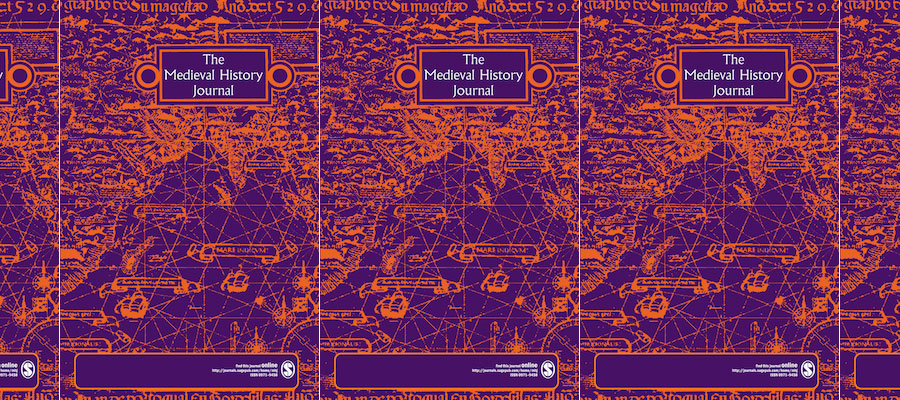Special Issue of The Medieval History Journal: Materiality in the Medieval and Early Modern Worlds – Worlds Within Things: Ways of Knowing and Narrating
Over the past twenty years a renewed interest in material culture, materialism, and materiality has shaped the practice of history in new ways moving the discipline "beyond words” to consider the worlds within things. Attention to the dynamics of materials and production have expanded ways of knowing the past and begun to reshape the kinds of narratives that historians craft. Objects and things can be said to constitute an additional archival repertoire, but they also require their own ways of reading, methods of analysis, and theoretical orientations, especially as we integrate materiality into the robust ways of writing history that have traditionally relied upon the written record. Most historians agree, it is not possible to offer a materialist reading in the absence of written sources. Yet, how do the two work together?
This special issue is dedicated to exploring the following related questions: What does materiality’s methodology entail? What modes of investigation and narration are deployed in a material analysis? How does a material focus shape and change the historian’s possibilities for narrative and argument? How does materiality give new voice and visibility to marginal social groups, make visible the movements of peoples and things long overlooked or simply not present in narrative texts or documentary sources? In what ways has materiality shaped an understanding of processes of memory and remembrance, emotional encoding, haptic encounters, and mental narratives that are difficult to express through words? How does the study of objects and things in the medieval and the early modern epochs open new ways of writing about and conceptualizing a broader and more connected world? The essays gathered in this special issue will contribute to an understanding of materiality that seeks to facilitate a more convergent understanding of our medieval and early modern pasts.
Possible themes include:
- material memories and ways of knowing the past
- material systems of values and use
- material biographies and traditional chronologies
- materiality, climate and periodization
- haptic encounters and evocation
- emotional frameworks of things
- ritual uses of objects and things, objects as gifts
- material archives and assemblages
- ideological and knowledge systems
- communications and networks of things
- subjects, objects, and the ethics of materiality
- global and trans-cultural connections
Abstracts written in English should be submitted by 15 April 2021; full papers should be submitted by 1 October 2021.
